2018 Fink Bioscience Symposium Speakers
Image
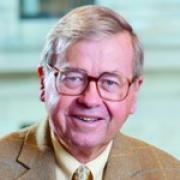

George W. Carmany III
Suite 936
50 Congress Street
Boston, MA, 02109
(617) 542-5918
george@carmany.com
George W. Carmany III ’62
George Carmany is a graduate of Amherst College, a director of the Macquarie Infrastructure Company, New York, NY; and is a senior advisor to Brown Brothers Harriman and Company; Essex Woodlands Health Ventures; EnGeneIC Ltd., a biotechnology company in Sydney, Australia; and The Asia Link Group of Beijing, PRC. He retired as a director of Sun Life Financial, Toronto, Canada in 2010, and served until 2005 as chairman and CEO of Helicon Therapeutics, a biotechnology company founded by the Cold Spring Harbor Laboratory, Roche Pharmaceuticals and OSI Pharmaceuticals.
Carmany is the past chairman of the New England Medical Center; a member of the President’s Circle of the National Academies; a trustee and member of the Executive Committee of Bentley University; past vice president of the Alumni Council of Amherst College; and past chairman of the Board of Associates of the Whitehead Institute for Biomedical Research. He is married to the former Judith Jermain Lawrence, and they are the parents of two children, Bill, of Los Angeles, Calif., and Elizabeth of N.Y.
Carmany, together with Gerald R. Fink ’62, are the founders and organizers of the annual Gerald R. Fink ’62 Bioscience Symposium.
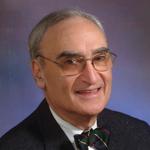
Gerald R. Fink
Whitehead Institute/MIT
Nine Cambridge Center
Cambridge, Mass. 02142
(617) 258-5215
gfink@wi.mit.edu
Gerald R. Fink ’62
Gerald R. Fink ’62 is the Margaret and Herman Sokol Professor and the American Cancer Society Professor of Genetics at Massachusetts Institute of Technology and a founding member of the Whitehead Institute. He was director of the Whitehead Institute from 1990 to 2001. His research focuses on the molecular biology of yeast and fungal infectious disease. Fink was the first to describe transformation in fungi—the stable uptake of DNA into the genome of yeast cells. He is past president of the Genetics Society of America. Among his many awards are the National Academy of Sciences Award in Molecular Biology, a Guggenheim Fellowship, the Medal of the Genetics Society of America, Emil Christian Hansen Award (Denmark), the Yale Science and Engineering Award, the Yale Wilbur Lucius Cross Medal, the 2001 George Beadle Award and the 2010 Gruber Award in Genetics. Fink has been elected to the National Academy of Sciences, the American Academy of Arts and Sciences, the Institute of Medicine and the American Philosophical Society. Fink has also founded two biotechnology companies, Myco Pharmaceuticals and Ironwood Pharmaceuticals.
Fink, together with George Carmany ’62, are the founders and organizers of the Gerald R. Fink ’62 Bioscience Symposium.
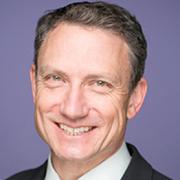
Lee Francis, MD, MPH
President & CEO
Erie Family Health Center
1701 West Superior Street, 3rd Floor
Chicago, Illinois 60622
(312) 432-7394
lfrancis@eriefamilyhealth.org
Lee Francis ’83
Dr. Lee Francis joined Erie Family Health Center in 1991 and has served as President and CEO since 2007. Dr. Francis is charged with enacting Erie’s strategic vision of serving as a national leader in the provision of community-based health care.
Under Dr. Francis’ leadership, Erie has undergone tremendous expansion, adding three new school-based sites and four new primary care centers, more than doubling Erie’s service capacity to nearly 70,000 patients. In addition, Dr. Francis oversaw the successful implementation of electronic health record systems at all of Erie’s health centers; the expansion of oral health services; and board development and diversification to assure adequate reflection of Erie’s patient population. He also continues to develop and leverage partnerships with local hospitals to assure seamless services for Erie patients, and with academic institutions to implement Erie’s Teaching Health Center program. Erie is one of the original 11 Teaching Health Centers in the country – and the only one in Illinois – that is part of a federal effort to transform family medicine residency programs by training physicians to practice primary care in a community-based setting.
In addition to his executive responsibilities, Dr. Francis is a board-certified internist and cares for adult patients at Erie. He also is an Assistant Professor of Clinical Medicine at Northwestern University Feinberg School of Medicine. Dr. Francis received a Bachelor of Arts degree in chemistry from Amherst College, and his medical degree from the University of Illinois at Chicago College of Medicine. Dr. Francis earned a Master of Public Health degree from the University of Illinois at Chicago School of Public Health. He completed his medical training in primary care internal medicine at John H. Stroger, Jr. Hospital of Cook County.

Edward Hughes
Email
Edward F.X. Hughes ’62
Dr. Hughes is a Professor of Health Industry Management and Management and Strategy in the Kellogg School of Management of Northwestern University and a Professor of Preventive Medicine in its Feinberg School of Medicine. He is a graduate of the Harvard Medical School and Columbia University School of Public Health. He trained originally in surgery at Columbia-Presbyterian Medical Center in the City of New York. He came to the Kellogg School from the National Bureau of Economic Research and Mt. Sinai School of Medicine in the City of New York. To the best of our knowledge, Dr. Hughes is the first physician in the country to be a tenured professor in a Business School in the United States.
At Kellogg, Dr. Hughes has served as Director of the Health Enterprise Program and Co-Director of its Biotechnology Program where he played a central role in the development of the School’s pharmaceutical/biotechnology/medical device curriculum. He also teaches Health Policy and Leadership. In addition to his responsibilities at Kellogg, Dr. Hughes founded the University's Center for Health Services and Policy Research (now the Institute for Health Policy Studies) and served as its Director for seventeen years. He is also the founder of Kellogg's joint MD-MBA Degree Program.
Dr. Hughes' research interests entail the pharmaceutical, biotechnology, and medical device industries, the efficient utilization of resources in healthcare, health policy and economics, managed care, and Leadership.
In 2015, Dr. Hughes was elected President of the Faculty Senate of Northwestern University, the senior governing body of the 3,300 Faculty of the University. He now serves in the formal office of Past-President.
Image
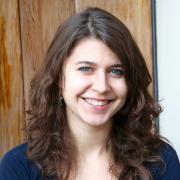

Emily Jackson
ekj@mit.edu
Emily Jackson ’13
Emily Jackson ’13 is a doctoral student in biology at the Massachusetts Institute of Technology, where she studies the evolution of the primate X chromosome in the laboratory of Dr. David Page. While at Amherst, she majored in biology and wrote her senior thesis under Dr. Caroline Goutte, and was also a member of Choral Society, an editor for The Element, and mentor for Reader to Reader. She moved to Boston after graduation and worked for two years as a research technician at the Dana Farber Cancer Institute, where she studied genomic instability in cancer cells and first became interested in genomics and computational biology.
Image


David M. Lawrence
PMB 524
1083 Vine Street
Healdsburg, CA, 95448
dmlawrencemd@gmail.com
David M. Lawrence ’62
Dr. Lawrence served as CEO and chairman of Kaiser Foundation Health Plan and Hospitals until his retirement in 2002. He was appointed CEO in 1991 and chairman the next year. He currently pursues interests in new business development, teaching, public policy, and writing. He is a member of the boards of McKesson Corporation, Proteus Digital Health, Aditazz and CellWorks. He is a member of the Health Advisory Boards of the RAND Corporation; an advisor to SomaLogic, Inc., MedExpert, Inc. and TangramCare; associated with Artiman Ventures and teaches with the Estes Park Institute. He consults with selected health care systems that pursue advanced integration strategies.
Prior to joining Kaiser Permanente in 1981, Dr. Lawrence worked in Public Health and Human Services in Multnomah County, OR; on the faculty of the University of Washington, School of Public Health and Community Medicine and the School of Medicine; as an advisor to the Ministry of Health of Chile; and as a Peace Corps physician. Dr. Lawrence is a founding board member of the Lucian Leape Institute of the National Patient Safety Foundation and a Distinguished Advisor to the NPSF. He is a member of the Institute of Medicine and the AOA physician honor society. He is the author of From Chaos to Care: The Promise of Team-Based Medicine (Perseus, 2002) and Best Care. Best Future: A Guide for Healthcare Leaders (Second River Publishing, 2014).
Dr. Lawrence received his Bachelor’s degree from Amherst College (1962), his MD from the University of Kentucky (1966), and his Masters of Public Health from the University of Washington (1973). He completed his residency in general preventive medicine at Johns Hopkins University and the University of Washington, and is board certified in general preventive medicine (1974). He has received honorary degrees from Amherst College, University of Kentucky, and Cornell University and is a member of the University of Kentucky Alumni Hall of Fame and the University of Kentucky College of Public Health Hall of Fame.
Image
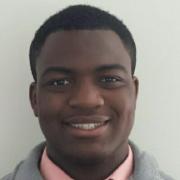

Niyi Odewade
(973) 573-8125
odewade73@gmail.com
Niyi Odewade ’17
Niyi Odewade has been working as a cardiology research assistant at Tufts Medical Center since graduating from Amherst College in May 2017. Under the supervision of Dr. Ethan Rowin, Dr. Martin Maron, and Dr. Mark Estes, he has been evaluating the impact of myocardial fibrosis on outcomes in patients with hypertrophic cardiomyopathy using cardiovascular magnetic resonance (CMR). In addition to investigating if the degree of fibrosis by CMR is linked to ventricular arrhythmias as well as to the development of systolic dysfunction in a cohort of 1000 patients, they seek to determine optimal techniques that allow for more easily reproducible quantifications of myocardial scarring. The research opportunity teaches him about the pathology of cardiovascular diseases and allows for exposure in reading CMR, Echocardiograms, and EKGs. Furthermore, he regularly watches surgeries, shadows physicians, and attends surgical rounds. In addition to their aspiration to publish the findings, the experience has magnified his passion to integrate academic medicine into his career.
Odewade isalso on the national policy committee of the Kidney Disease Screening and Awareness Program (KDSAP). Alongside the founder at Harvard Medical School, Dr. Li-Li Hsiao, he engages in efforts to refine the program’s rules and regulations on the national and local level. For example, he will help create official guidelines for the establishment of KDSAP chapters at other undergraduate institutions, help distribute grants to chapters in need of financial support, and ensure that community screenings are conducted with attention to cultural competency. The goal of the committee is to further facilitate the development of KDSAP as a nationally recognized, student-run organization. Further, they aim to enable passionate and self-driven student leaders throughout the United States. His involvement in KDSAP and the national committee derives from his desire to be involved in broader conversations that aim to re-imagine the healthcare experience for disadvantaged populations.
Image
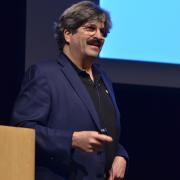

Gary Ruvkun
Email
Gary Ruvkun
Dr. Ruvkin’s research, which combined elegant genetics and molecular biology, demonstrated that a previously unknown class of RNAs (called microRNAs and small interfering RNAs) affected post transcriptional gene activity in nematodes and vertebrates . His seminal findings led to an explosion in research that greatly increased our understanding of the control of such diverse processes as cell differentiation, developmental timing, cellular metabolism, cell death, and pathologies such as viral infection and cancer. He also received multiple awards, including the Gruber Award, Lasker Award, Breakthrough Prize in Life Sciences, Wolf Prize, and Dan David Award.